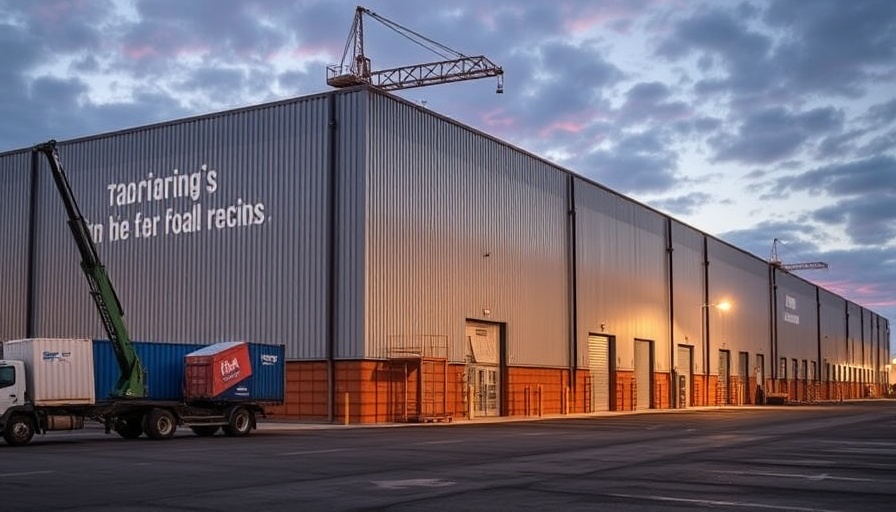
The Impact of Tariffs on Industrial Real Estate Decisions
The landscape of industrial real estate is shifting under the weight of uncertainty induced by tariffs. While not all tariffs on foreign goods have yet been implemented in the United States, the mere speculation surrounding them has created ripples of apprehension among industrial tenants. These businesses are stepping back, delaying critical decisions about new leases and expansions, as they navigate the murky waters of potential price hikes and altering consumer behavior.
Waiting for Clarity: A Common Sentiment
Carolyn Salzer, senior director and head of research at KBC Advisors, noted during a recent NAIOP industrial conference in Los Angeles that tenants find themselves in a "wait and see" stance due to fluctuating trade policies. This uncertainty isn’t just theorized; it’s very real for landlords and tenants alike. Many warehouse owners report that potential occupiers are delaying expansions and lease negotiations, instead opting to wait for clearer economic signals that could directly influence consumer demand.
The Broader Economic Landscape
Tariffs, particularly those proposed by the Trump administration—and now under President Biden—are a major concern for businesses across the nation. In theory, these tariffs are intended to protect domestic industries. However, their effect on the commercial real estate market appears more complex. As companies grapple with the prospect of increased costs from imported goods, the decisions regarding commercial real estate are being put on hold. The overall sentiment is one of caution, as many are choosing to delay major financial commitments.
Implications for Real Estate Investing
As less capital is being deployed into new leases, the hesitancy in decision-making is likely to reflect on the real estate market trends. Investors and developers should be acutely aware of these shifting dynamics, particularly as the demand for industrial spaces may dip temporarily. This presents a dual opportunity: while risks are heightened, so too is the potential for strategic acquisitions in a less competitive market.
Local vs. National Trends
It’s important for real estate agents and investors to understand how these national trends cascade down to local levels. For example, in regions heavily reliant on logistics and distribution, the anxiety surrounding tariffs could lead to longer periods of vacancy as tenants reconsider their needs. On the other hand, areas experiencing growth in e-commerce may continue to attract tenants despite challenges, suggesting the demand for industrial real estate isn’t universally declining.
Remembering the Consumer
At the core of this discussion remains the consumer. The anticipated consumer demand shifts that could arise from tariff-induced price increases could alter purchasing behavior. Real estate professionals must remain vigilant, routinely assessing how changes in the economic landscape may affect their clients. Understanding these dynamics will not only enhance their service but also solidify their standing as trusted advisers in the complex realm of real estate.
Final Thoughts: Navigating Uncertainty
As the future looms uncertain, both tenants and landlords must adapt. Tariffs are just one aspect in an intricate web of economic factors that affect the real estate market. For prospective tenants looking to enter the market, it’s crucial to leverage the current climate as a strategic opportunity, whether that means negotiating more favorable lease terms or waiting for the right moment to secure ideal spaces.
For real estate agents and industry stakeholders, it’s important to stay informed and proactive. Whether exploring real estate listings, connecting with local real estate agents, or monitoring market trends, knowledge and preparation will be essential in navigating this evolving landscape. We encourage you to seek your next investment or lease opportunity smartly and strategically, utilizing resources and connections available to you today.
 Add Row
Add Row  Add
Add 



Write A Comment